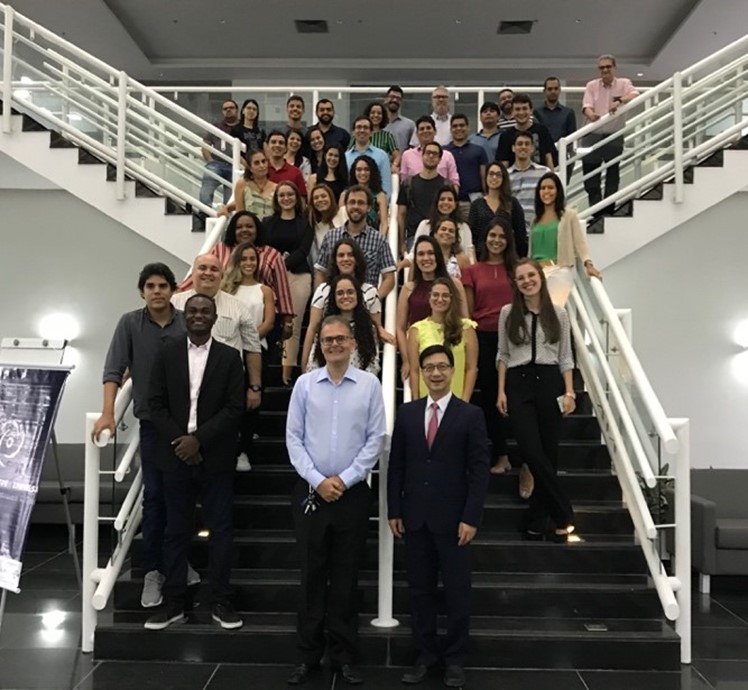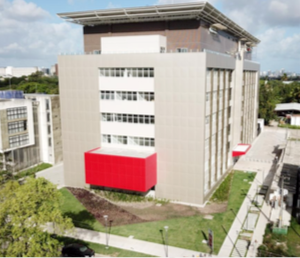
Oct 30th 2020
A three-year, Canadian $540,000 funding package from Energi Simulation is the focus of an Industrial Research Chair in Reservoir Modelling and Robust Optimization, in the Federal University of Pernambuco, UFPE, Brazil.
Energi Simulation will support a research chair in reservoir engineering, which will be led by Dr. Leonardo Guimarães. The chair will support a team of research associates and students in developing efficient algorithms to incorporate geomechanical and geochemical phenomena into reservoir simulation, as well as applying innovative robust optimization methods to reservoir management.
“For over 10 years since launching an Energi Simulation Industrial Research Chair at UFPE, we have been very impressed with Dr. Leonardo Guimarães’ program, in the scope and delivery of the team’s research work, spanning from laboratory studies, reservoir characterization and modelling, to field applications, in support of the development of valuable energy resources in Brazil. As the University is aiming for excellence in innovation and internationalization, Energi Simulation is very pleased to continue as a partner in the process, with the renewal of Dr. Guimarães’ Chair program.“
Duke Anderson, President, Energi Simulation
The central idea of the Chair is to study the effects of pressure, stress, deformation and geochemical disturbances caused by fluid (water and CO2) injection on the properties of reservoir rocks and fracture network, cap rocks and geological faults, with direct application to carbonate reservoirs of the Brazilian pre-salt, from safety and impact on fluid production and optimum reservoir management aspects.
To achieve the general objective above, some important objectives are set:
- Development of hydro-mechanical constitutive models for the chemical degradation of carbonate rocks;
- Development of a flow-based upscaling methodology using embedded finite element technique to obtain equivalent mechanical and hydraulic properties of fractured reservoirs;
- Development and implementation of upscaling techniques to embed fractures and karsts in simulation grids for coupled thermo-hydraulic transport and flow problems;
- Development of strategies to model controls of intelligent wells for waterflooding and WAG process optimization;
- Development POD/TPWL reduced order methods applied to multi-fidelity waterflooding optimization;
- Production strategies (optimization) considering geomechanical constraints.
Dr. Leonardo Guimarães is Professor at Department of Civil Engineering since 03/2003 and has over 20 years of experience in the area of geotechnical engineering, reservoir management and simulation, and geomechanics. He holds a Ph.D. degree in Geotechnical Engineering from Technical University of Catalonia (UPC, Barcelona, Spain), an M.S. degree in Geotechnical Engineering from Federal University of Rio de Janeiro (COPPE/UFRJ, Rio de Janeiro, Brazil), and a B.S. degree in Civil Engineering from Federal University of Pernambuco (UFPE, Recife, Brazil). He had several financed projects from Brazilian government and oil industry and is supervisor of more than 20 graduate students.
About UFPE
The Federal University of Pernambuco, UFPE, is located in Recife, which is the capital of the state of Pernambuco, in the Northeast region of Brazil. The UFPE is the leader university in North and Northeast of Brazil comprising a main campus located in Recife and several other branch campuses distributed in the interior of Pernambuco state.
UFPE was founded in 1946 by tying together some old isolated colleges, and in particular, the College of Engineering, which was renamed Center of Technology and Geosciences (CTG) in 1995, and it is now completing 113 years of full activities.
CTG’s contribution to undergraduate teaching has been growing each year since almost all its faculty is involved in teaching duties in one of the undergraduate schools. The major emphasis of the teaching and research faculty is on research as well as on training of master’s and doctoral degree students. The CTG is, first and foremost, dedicated to the fundamental task of generating science and technology, based on people, ideas, equipment, methods and processes. This strong academic emphasis is strongly committed with the needs of society.

Energy, Oil and Gas are strategic areas for UFPE. The CTG has commissioned in 2019 a new facility, LITPEG, an integrated laboratory of multi, inter and transdisciplinary research actions focused on the various stages in which the oil industry operates, such as, exploration, production, and refining of crude oil. LITPEG is seven stories high, comprising 12 laboratories.
LITPEG (The Integrated Energy, Oil and Gas Laboratory) structure aggregates the main UFPE laboratories with activities focused on the development of the area of Petroleum, Gas and Biofuels, ensuring the synergy, sharing and optimization of resources. The Chair team occupies half of the 5th floor (numerical team) plus the rock mechanics lab on the 3rd floor.